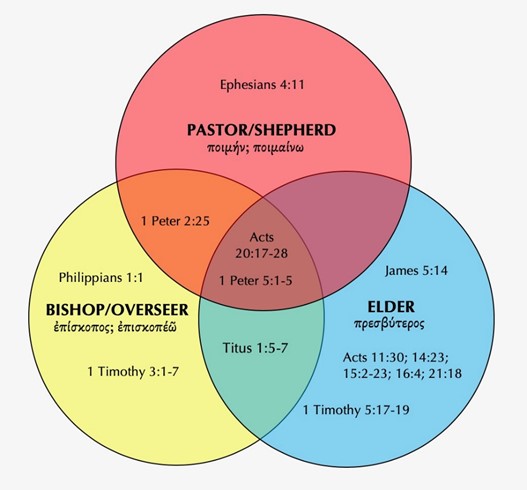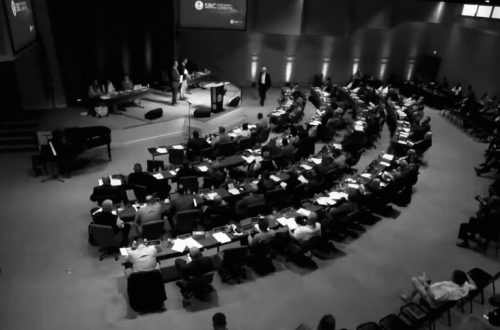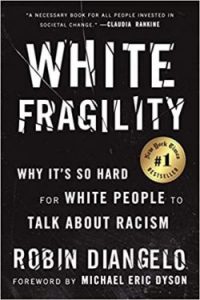I want to thank Sam Storms for his gracious and direct interaction with my response to his earlier essay. I want to reiterate again how grateful I am for Dr. Storms and his long ministry and faithfulness to the Lord’s work. I have been a direct beneficiary of it, and I am truly in his debt. My hope and prayer are that our ongoing dialogue will be a faithful example of iron sharpening iron (Prov. 27:17).
Storms says that I have largely missed the point of his article arguing that women can be pastors. As I understand it, he has argued that the title pastor is a gift not an office—much less an office of senior governmental authority like elder/overseer. For this reason, women can have the gift of pastoring and hold the title pastor. Storms concludes:
My conclusion is that Denny and I agree on the most fundamental truths of this debate. Elder and Bishop/Overseer are interchangeable. All Elders/Overseers should pastor God’s people. Only men are to serve as Elders/Overseers.
Where we disagree concerns the meaning of “pastor”. I’m still waiting for someone to show me where all pastors must be Elders. In the absence of such a text, and given the fact that “pastor” is a spiritual gift, not an office, I see no reason why a woman cannot be given that title.
Yes, we do in fact agree that the terms elder/overseer designate the office of senior governmental authority in the church. We also agree that this office is reserved for men as qualified by scripture. This agreement is what makes us both complementarians, and I am grateful for that.
Nevertheless, we do still disagree about whether the term pastor designates an office in the church. Because of that, we also disagree whether the Bible allows women to be pastors. So let me speak to each of these in turn.
Can Women Be Pastors?
Storms writes, “Given the fact that ‘pastor’ is a spiritual gift, not an office, I see no reason why a woman cannot be given that title.” The main problem with this conclusion is the framing of the question. It’s essentially an argument from silence that goes like this: “The New Testament doesn’t say that women can’t be pastors, therefore they can.”
But this is a little bit like my young son telling me, “You never told me that I couldn’t put the neighbor’s cat in the dishwasher, therefore I can.” Well no, actually he can’t. While he would be correct that technically I have never said the exact words, “You are not allowed to put the neighbor’s cat in the dishwasher,” I have given him instruction about caring for animals and our neighbors. By good and necessary inference, he has more than enough information from me to know that I would not approve of his putting the neighbor’s cat in the dishwasher. It’s just not credible for him to claim that he didn’t know any better.
Likewise, it is true that there is no line in scripture that exactly says, “A woman must not be a pastor” or “A woman may not have the gift of pastoring.” Nevertheless, God has given us clear instruction about the function of a pastor and about whether a woman is permitted to exercise those functions. By good and necessary inference, we have more than enough revelation from God’s word to know that God does not approve of women serving as pastors (whether or not one conceives of pastor as an office).
What does the Bible say about the function of a pastor? Storms admits that he has not yet given a biblical explanation of the function of a pastor. Nevertheless, he claims that there are functions of the pastoral gift that should be open to women. And it is here that I think we may have our sharpest disagreement. In scripture, the primary role of the pastor is leading and teaching the entire flock. And it is these two activities that the Bible explicitly forbids to women (1 Tim. 2:12).
How do we know that a pastor’s primary function involves leading and teaching a local congregation? Remember, pastor is simply another word for shepherd. The shepherd terminology in scripture serves as a metaphor, and that metaphor has deep roots in both the Old and New Testaments. To understand the pastor’s function, you must understand the shepherd metaphor.
The Old Testament speaks of God himself as a Shepherd who goes before his flock and guides it (Psalm 23:3; 68:7; 80:1; Is. 40:11; 49:10), who leads it to pastures (Jer. 50:19) and to places where it may rest by the waters (Ps. 23:2), who protects the flock with his staff (Ps. 23:4), who whistles (Zech. 10:8) to the dispersed and gathers them (Isa. 56:8), who carries the lambs in His bosom and leads the mother-sheep (Is. 40:11).1
The Old Testament also uses “shepherd” to refer to political and military leaders (e.g., 2 Sam. 7:7; 1 Chron. 17:6: Jer. 2:8; 3:15; 10:21; 22:22; 23:1–4; 25:34–36; 50:6; Eze. 34:2–10; Is. 56:11; Mic. 5:4; Zech. 10:3; 11:5f., 16f).2 Most importantly, “shepherd” is the title given to the future Messiah from the House of David:
Ezekiel 34:23-24, “23 Then I will set over them one shepherd, My servant David, and he will feed them; he will feed them himself and be their shepherd. 24 And I, the LORD, will be their God, and My servant David will be prince among them; I, the LORD, have spoken.”
Indeed, Israel and Judah will become one people under one shepherd (Eze. 37:22, 24).3
The New Testament applies the shepherd metaphor to Jesus:
John 10:11-16, “11 I am the good shepherd; the good shepherd lays down His life for the sheep. 12 He who is a hireling, and not a shepherd, who is not the owner of the sheep, beholds the wolf coming, and leaves the sheep, and flees, and the wolf snatches them, and scatters them. 13
He flees because he is a hireling, and is not concerned about the sheep. 14 I am the good shepherd; and I know My own, and My own know Me, 15 even as the Father knows Me and I know the Father; and I lay down My life for the sheep. 16 And I have other sheep, which are not of this fold; I must bring them also, and they shall hear My voice; and they shall become one flock with one shepherd.”
Notice that Jesus as the good shepherd leads and protects his flock by speaking to his flock. They hear his voice, and they follow him. In this way, Jesus appears as the “Shepherd (poimen) and Overseer (episkopos)” over our souls (1 Pet. 2:25). Jesus applies the very same metaphor to the apostles’ ministries. For example, Jesus tells Peter twice to feed the flock and once to shepherd them (John 21:15-17). The “feeding” obviously has to do with Peter’s teaching and preaching and the “shepherding” has to do with Peter’s leadership over the flock.
That is why it is no accident that the New Testament applies the shepherd metaphor to the office of elder/overseer. Jesus is a shepherd who leads and teaches. The apostles are shepherds who lead and teach. And now elders/overseers are undershepherds who also lead and teach (1 Pet. 5:4). The elder/overseer must be apt not only to teach but also to refute those who contradict (1 Tim. 3:2; Titus 1:9). In short, shepherds must lead and protect the flock by teaching them and warning them against false teaching. The sheep are supposed to hear their Chief Shepherd’s voice in the teaching of His undershepherds (i.e., elders/overseers).
In Acts 20, it is clear that the Paul commands the elders to “Be on guard for yourselves and for all the flock, among which the Holy Spirit has made you overseers, to shepherd the church of God which He purchased with His own blood” (Acts 20:28). How are shepherds to “be on guard” for “all the flock”? What is the shepherd’s method of protecting the flock? Paul offers himself as an example of how to protect the flock. It’s through teaching: “I did not shrink from declaring to you anything that was profitable, and teaching you publicly and from house to house, solemnly testifying to both Jews and Greeks of repentance toward God and faith in our Lord Jesus Christ” (Acts 20:20-21). Again, the shepherd’s primary method of protecting the flock is through leading and teaching the word.
It is this precise function that is given to the shepherds of the church. The shepherds are called to protect God’s people primarily through their teaching and leadership. And yet it is these very tasks that the Bible very explicitly forbids women from undertaking. Paul writes, “I do not allow a woman to teach or exercise authority over a man, but to remain quiet” (1 Tim. 2:12). How is a woman going to teach and lead the flock as a pastor when those two functions have been prohibited to her in holy scripture? This is the question that Storms has not answered, and I don’t believe his view can answer in a satisfactory way.
Perhaps Storms would respond by arguing that gifted women might pastor other women (or perhaps children) without running afoul of 1 Timothy 2:12. The problem with this reading is that the shepherd/pastor metaphor has reference to the entire flock, not parts of it. This is why I conclude that the Bible would not allow women to be pastors even if pastor were not construed as an office. The gift involves authoritative leading and teaching the entire flock, both of which are explicitly forbidden to women (1 Tim. 2:12).
None of what I have written above should be construed to suggest that I’m conceding the point about pastor as an office. I still believe that Storms is misreading the biblical evidence that indicates pastor as an office of the church. Nevertheless, even if we were to accept his argument that pastor is a gift not an office, a woman would still be prohibited from exercising the functions of the pastoral gift.
Is Pastor an Office?
Storms argues that while the Bible teaches that every elder will be a pastor, it does not teach that every pastor will be an elder. He writes, “There is not a single text in Scripture which says that ‘every pastor’ is also a bishop or elder… The word ‘pastor’ is never used of an ‘office.'”
Unfortunately, I think Storms’ thesis has an uncomfortable argument from silence at the heart of it. His argument appears to go like this: “The bible doesn’t explicitly say that every pastor is an elder, therefore some pastors must not be elders.” The conclusion does not follow from the premise. You can see what I mean if I replace the terms: “The bible doesn’t explicitly say that every pastor (poimen) should be chaste, therefore some pastors need not be chaste.” This argument doesn’t work because even though there is no explicit statement in the Bible saying, “every pastor should be chaste,” the Bible clearly reveals in other ways that leaders must have exemplary character.
Likewise, even though there is no Bible verse saying “every pastor should be an elder,” the Bible clearly reveals that the pastoral gift involves functions that are exclusive to the office of elder/overseer—namely, the functions of leading and authoritatively teaching the entire flock. That is why so many interpreters over the long history of the church have understood the terms elder/overseer/pastor to be interchangeable in texts like Acts 20:17-28 and 1 Peter 5:1-5. All three terms appear together and have reference to the same office of elder/overseer/pastor.
Colin Smothers has created a helpful Venn diagram to summarize the biblical data and the overlap of the key terms. The overlapping areas of the diagram show where a single text appears to use the relevant terms interchangeably. Note in particular the texts where all three circles overlap.

Storms contends that Ephesians 4:11 does not recognize the “pastor” as an office but as a gift. He writes, “The word ‘pastor’ is never used of an ‘office.’ It is a spiritual gift (see Eph. 4:11…).” But this is a false dichotomy, for it is possible for pastor to be both gift and office, and in fact that does seem to be what Ephesians 4:11 indicates. The pastor is one who performs functions that are otherwise exclusive to the office of elder/overseer.
Conclusion
I am concerned that Storms’ recommendation is pastorally unwise. Wise pastoral speech always accounts for context. In our context, there’s a widespread assumption that pastors are office holders and that they do exercise authority/oversight over the whole church. So when someone in our context says that women can be pastors, what are they effectively doing? They are saying that women can exercise authority/oversight over the whole church and that they hold this office. Let me be clear. Storms is a complementarian and does not intend for this to happen. Nevertheless, I believe it will be the effect of arguing that pastor is a gift but not an office. In other words, even though Storms insists that pastor is not an office, I am concerned that many who agree with him will functionally continue treating pastor as an office. Which means, you’ll have women doing what 1 Timothy 2:12 says they should not do, even if that is not Storms’ intent.
Part of the wisdom of limiting our offices to the two offices given by the New Testament is that it ties the work to the qualifications given in Titus 1 and 1 Timothy 3. Evangelicals don’t do themselves any favors when they multiply “offices” or “jobs” in the church. But when you limit yourself to the two offices provided by Scripture—elder and deacon—you help preserve the integrity of the church. By introducing this novel interpretation of pastor, Storms creates a third category that hovers somewhere in between non-office and office, depending on the church. In this way, I think his proposal risks delinking the function of pastor from its qualifications.
I am really grateful for Sam and his ministry and for this interaction. It is sharpening me, and I hope it will have the same effect for readers following along.
____________________
1 Joachim Jeremias, “Poimen, Archipoimen, Poimaino, Poimne, Poimnion,” in Theological Dictionary of the New Testament, ed. Gerhard Kittel, Geoffrey W. Bromiley, and Gerhard Friedrich, vol. VI (Grand Rapids, MI: Eerdmans, 1964), 487.
2 Jeremias, “Poimen,” 487.
3 Jeremias, “Poimen,” 488.




